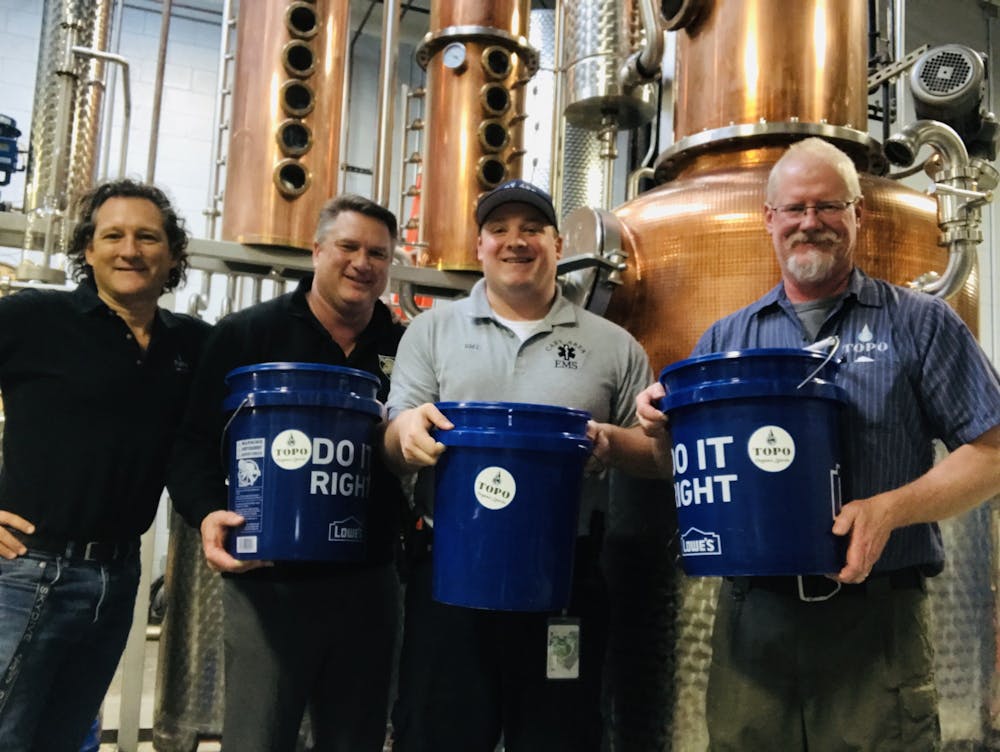To help alleviate the impacts of COVID-19, Top of The Hill Restaurant & Brewery is now producing hand sanitizer after the U.S. Food and Drug Administration gave distilleries the approval to do so.
They’ve produced over 100 gallons of hand sanitizer following the World Health Organization official recipe, donating around half to COVID-19 first responders and selling the rest in 18 oz. bottles to community members.
“We literally, at one point in the beginning, took vodka and turned it into hand sanitizer,” said Scott Maitland, founder of TOPO Distillery.
He said TOPO became aware of the possibility of making hand sanitizer early on in the pandemic, but they had to wait for a government go-ahead.
“The problem was that it was illegal," he said. "There were a couple of distilleries that started doing it, but they got in some serious trouble. We knew we could do it, and on the day the FDA said ‘Well, It's not legal, but we won't prosecute,’ we started doing it.”
The WHO sanitizer recipe allows for the use of food-grade ethanol that breweries provide with ease, but the FDA-approved recipe requires “denatured” alcohol — alcohol that contains bitter-tasting and sometimes toxic chemicals that would prevent children from drinking the sanitizer. While the FDA does not legally sanction WHO’s recipe, it has said it will refrain from prosecuting breweries and others who produce hand sanitizer to address the COVID-19 crisis.
Maitland said some manufacturers in the community had donated some of the necessary ingredients after hearing about TOPO’s sanitizer donations to first responders.
Todd McGee, the community relations director for Orange County, said breweries like TOPO became critical in producing hand sanitizer once the commercial supply was quickly exhausted.
“It’s a definite need," he said. "You can’t find it anywhere, in any kind of retail store. Even the supplies to make your own hand sanitizer, like rubbing alcohol and aloe gel are in scarce supply.”



